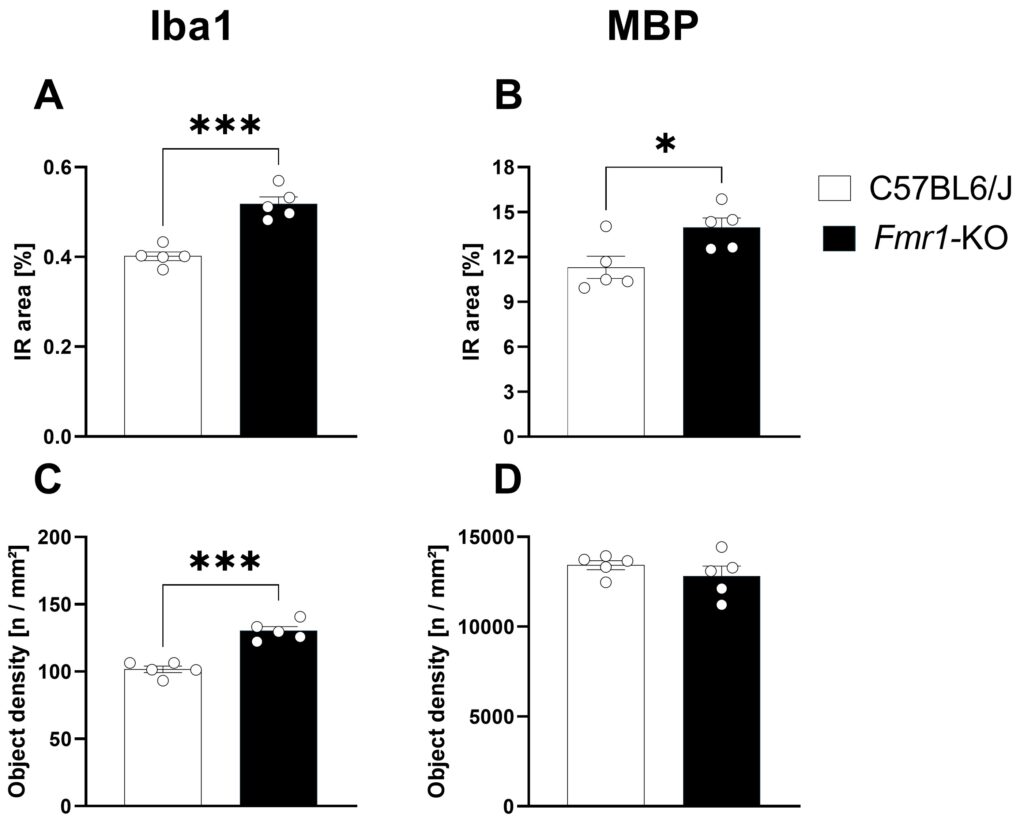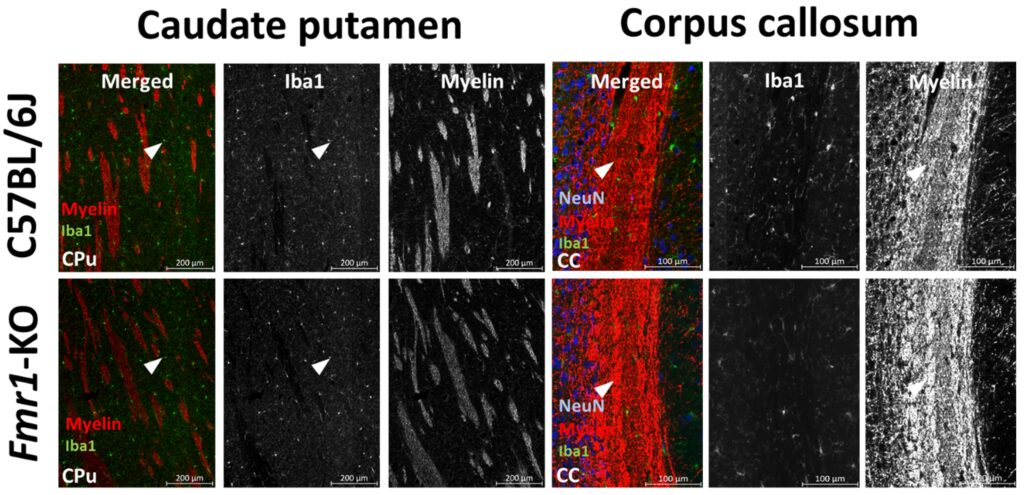A mutation of the FMR1 gene (Fragile X mental retardation 1) leads to a X-linked genetic disorder called Fragile X syndrome (FXS), the most frequently inherited form of intellectual disability and the monogenic cause of autism spectrum disorder (ASD). Patients of ASD present communication and socialization impairments, repetitive behaviors with restricted interest, and hyperactivity. Silencing the FMR1 gene by replacing more than 200 CGG repeats of exon 5 with a neomycin resistance cassette creates a valuable tool to study FXS and ASD.
Fmr1-KO mice present defects in social communication, elevated levels of hyperactivity, and high levels of repetitive behavior compared to wild type mice (see October 2021 newsletter ). These behavioral characteristics of Fmr1-KO mice make these mice already a valuable tool to investigate FXS and ASD and to test newly developed compounds for their efficacy.
New histological evaluations using Fmr1-KO brain tissue show increased levels of activated microglia in the caudate putamen of 7 weeks old male mice compared to C57BL/6J animals (Figure 1 A and C). Moreover, quantification of myelin revealed increased levels in the corpus callosum of 7 weeks old male Fmr1-KO mice compared to age-matched C57BL/6J mice (Figure 1 B and D). Representative images of the neuroinflammation marker Iba1 and myelin basic protein (MBP) are shown in Figure 2.
These data suggest that neuroinflammation as evaluated by Iba1 for activated microglia and the level of myelination could be valuable markers to analyze disease severity and alteration of these parameters during drug efficacy studies.

Figure 1: Quantification of Iba1 and myelin basic protein in 7 weeks old Fmr1-KO and B6 mice. Iba1 IR area and object density in caudate putamen (A and C). MBP IR area and object density in corpus callosum (B and D). Unpaired t-test. n= 5 per group. Mean ± SEM. *p<0.05, ***p<0.001.

Figure 2: Representative images of Iba1 (green), MBP (red) and NeuN (blue, CC only), in 7 weeks old C57BL/6J and Fmr1-KO mice. Caudate putamen (CPu), corpus callosum (CC).
Contact us today to get your Fmr1-KO mouse study started!









